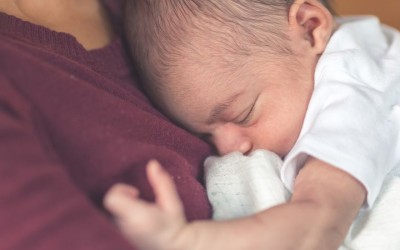
Safe Maternity Care During the COVID-19 Pandemic, What We’re Learning
On April 16, a briefing for U.S. Congressional staff offered insights about how maternity care is being provided in the midst of the COVID pandemic. We joined a number of maternal health organizations as a sponsor of this virtual briefing. Presenters included Laura Riley, MD, Cathy Collins-Fulea, DNP, Denise Jamieson, MD and Rahul Gupta, MD. Many of these insights mirror information we share in our video interview with Dr. Linda Burke, author of The Smart Mother's Guide to Pregnancy, but there is helpful new information too.
The three doctors and one midwife spoke about the current practices in places like NYC and Atlanta, as well as more rural areas, citing some of novel strategies that have arisen from the current pandemic. As women and families who may be facing an impending birth or have just given birth and are now trying to navigate the postpartum period, some of this information may help set your expectations and prepare you better.
Here’s what caught our attention:
Virtual doula support – you don’t have to be alone and forgo your planned doula support. She may not be able to wipe your forehead, but her words and tone can be there for you.
Early discharge – women who are healthy with uncomplicated deliveries can go home as soon as 24 hours after birth, in many places that used to keep you longer. To our preeclampsia families, that does not include you. You will want the medical attention that you need for as long as necessary. Hospital staffs are prepared to care for you safely, protecting you and them from COVID transmission.
Decreased number of prenatal visits – and more of them are conducted using video or telephone calls (i.e., telehealth). This has presented some obstacles as women need to weigh themselves and take their blood pressures at home. Some providers have solutions for their patients; others are having a hard time having a cuff delivered to their patients. Congress is being asked to consider payor reform so that durable medical equipment, like BP cuffs, are covered and that – in all states – midwives can prescribe this equipment. (Stay tuned: the Preeclampsia Foundation is rolling out a program to help address this challenge.)
Restricted visitors – to protect the mother, her baby and the healthcare staff, visitors are being restricted. You can expect to have one support person with you but they will be screened for COVID and they will have their temperature taken every 12 hours. They will not be able to come and go.
A birthing mother is breathing – a lot – and exhaling forcefully. This exposes everybody in the room. With so much uncertainty about who is or isn't COVID positive, the healthcare staff may be wearing a lot of personal protection equipment – masks, gloves, shields and clothing – that may make them look intimidating or impersonal, but it is to protect them and ultimately everybody else they come in contact with.
Vertical transmission and breastmilk – Thus far, there is no evidence that COVID can be transmitted from mother to baby in utero or via breastmilk. There are creative ways to ensure that mom’s healthy and important breastmilk get to her baby after birth. If she’s COVID positive, she can pump and have somebody else feed the baby, or she can wear a mask, wash her hands and breast thoroughly before breastfeeding.
Postpartum support is limited – this is especially difficult if mom’s own health is compromised, either because she’s COVID positive or because she had a complicated birth. Having grandma, a favorite aunt or a postpartum doula come support you at home is not possible. The “village of support” you envisioned is shut out of your home. Tip: though not the same as somebody helping you with diaper changes, connect online or on the phone with wise women and people who can genuinely support you.
Real time research is super important – Women who are pregnant and delivering in the midst of this pandemic should consider enrolling in PRIORITY, a special registry that’s been developed to research COVID in the context of pregnant populations.
You can watch the entire briefing here, free registration required.
Related Articles

Ánimo y cuídate: la preeclampsia puede estar asociada con enfermedades cardíacas y accidentes cerebrovasculares más adelante en la vida Descargue nuestra hoja informativa

Eclampsia is a very serious complication of preeclampsia characterized by one or more seizures during pregnancy or in the postpartum period.

Doulas can help bridge the gap for any mom, but especially those most vulnerable to maternal illness and death.

La preeclampsia, en todas sus formas, puede requerir muchos análisis, tanto durante como después del embarazo. ¿Alguna vez se preguntó por qué el proveedor de atención médica le solicita tantos anális...

Melbourne, FL – September 17 , 2024 – The Preeclampsia Foundation, in partnership with the International Society for the Study of Hypertension in Pregnancy (ISSHP) and Society for Ma...

Resultados de varios estudios apoyan la hipótesis de que el estrés causado por un embarazo y parto traumáticos puede en muchas ocasiones anular la habilidad de salir adelante emoc...

Is there a connection between maternal diet and preeclampsia? The PRECISE Network research team and I recently completed an evidence review to compile information on maternal nutritional factors that...

What you’ll learn in this article: Many risk factors contribute to an individual’s chance of getting preeclampsia. These risk factors may be genetic, physical, environmental, and even s...

Question: Progesterone supplementation - first trimester and beyond - can it help the vascular constriction by keeping the smooth muscle relaxed (17HP shots), and is it associated with early supplemen...

